Whenever you’re packing your bags for a big trip, have you ever thought about who you travel for? Most of us travel for ourselves; for our own pleasure; to expand our horizons — and there’s beauty in that kind of self-improvement and introspection. But here’s a fun fact; your travel plans tend to have a much bigger impact than you realize, especially for the local communities at your destination of choice. The next time you go exploring, though, it would do others (and your soul) good if you keep in mind ways to help locals while travelling too.
Why help local communities while travelling?

Image credit: Vonecia Carswell
A huge chunk of making travel a more sustainable practice lies in the way we look out for our impact — not only on the environment but on local communities. To them, these travel gems are more than just a tourist spot; they’re home. So how about we dwell on that a little longer the next time we take a tour or buy a souvenir?
In the spirit of sparking conversations that further sustainability in the travel sector, TripZilla presents a digital series, Last Call: Sustainable Travel. Welcome to the travel’s new chapter: where we also keep in mind these best ways to help locals during and long after our trips.
Simple things you can do to help locals while travelling
1. Feast on what the locals eat
Perhaps the most (ful)filling way to get to know a place is through its cuisine! When travelling, get your fill of local fare; let those new flavour profiles expand your repository of tastes and textures. Embarking on a gastronomic adventure doesn’t only satisfy your palate; it also shows your openness to savouring new cultures.
2. Go where locals grow food and raw materials
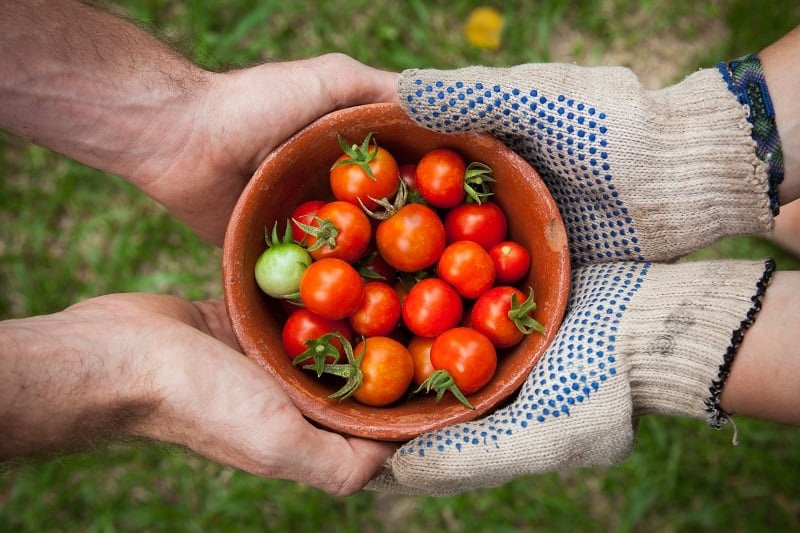
Image credit: Elaine Casap
When was the last time you included a farm visit on your itinerary? To seek out local farmers is to shake the hands that feed you –— that’s a soul-nourishing experience tourists often overlook while travelling, but certainly shouldn’t miss. When you know more about the painstaking work that goes behind every harvest it takes to make the food on your plate, you elevate your respect for those individuals. The same goes for all local products lovingly handmade to catch your eye.
So go ahead: frolic on farms, step foot inside a weaving house, visit plantations. Step into the shoes of people who make it their day’s mission to feed their families, at the same time nourishing others through meaningful tourism and hospitality experiences.
3. Engage with as many locals as you can
Of course, with these visits come many conversations. Dive into them deeply, with genuine interest and care. Don’t just treat tours as a break from your daily grind. You are being welcomed into someone else’s day-to-day, after all. Sustainable travel won’t move forward without travellers’ commitment to making trips less about themselves and more about the faces and places they encounter.
Plus, you really don’t know how a simple question brightens someone’s day. The simple act of being human first and reaching out is enough to uplift one’s spirit. Try it sometime, but also gauge if the person you’re talking to is reciprocating your eagerness first.
4. Avoid exoticising any culture that’s different from yours
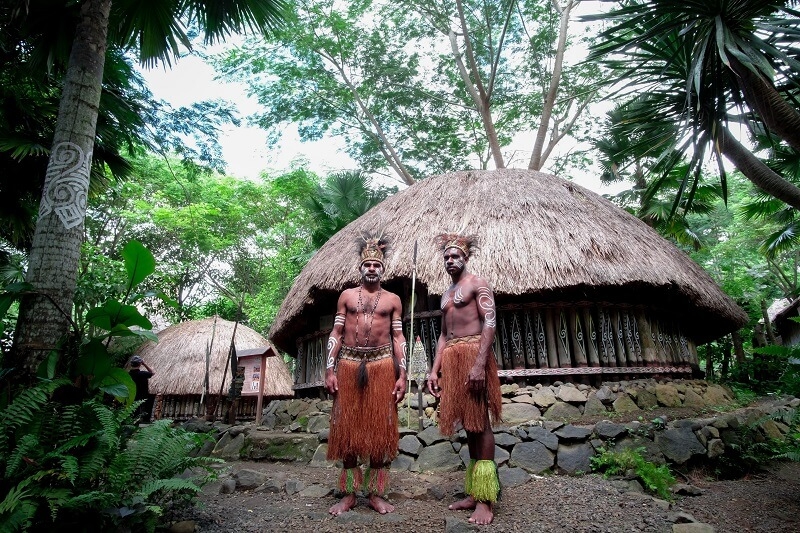
Indigenous peoples of Bali, Indonesia who give guests a glimpse of their traditional homes. | Image credit: Surya Prakosa
There are many grey areas and thin lines crossed in travel and culture. It’s perfectly fine to appreciate culture that’s new or unique to you, but over-exoticising is different altogether. Know that cultural experiences are more than just markers of how we’re utterly different from one another; they rather highlight how innately diverse the world is. Interacting with locals while travelling gives us a chance to celebrate our varying realities, customs, and traditions. Do so with sensitivity and courtesy.
Also read: 8 Things That Only Culturally Insensitive Travellers Do
5. Choose homegrown souvenirs
If you’re a fan of souvenirs and keepsakes, choose local items that are handmade, hand-grown, and fair trade. The more ‘hands’ that went into making the product, the more locals you’ll be helping while travelling. And when you’re giving these souvenirs to loved ones back at home, make sure to explain what they mean to the people who made them. Prolong the ripple effect! Make it reach farther, wider!
Also read: 25 Cute & Cheap Souvenir Items to Buy from Korea
6. Watch a cultural show

Image credit: Micheal Afonso
Traditional, modern, musical, theatrical, film, visual art — whatever floats your boat. What’s important is that you make time for a cultural show or exhibit in your destination. Support artists and creators wherever your feet bring you. It’s a good time to be alive! Don’t you think others’ expressions of their time on Earth will make you even more grounded? This brings to mind the age-old question: Does art imitate life, or is it the other way around? It’ll be refreshing to mull things over through the eyes of locals in your destination.
7. Know a place’s customs, traditions & rules — and respect them
This one is pretty basic and needs no further explanation. If we’re to respect places better, the least we can do is follow their rules and hold their ideals in high regard. You would want tourists in your home country to do the same thing, too.
8. Spread the word about an exciting destination only when the locale is ready
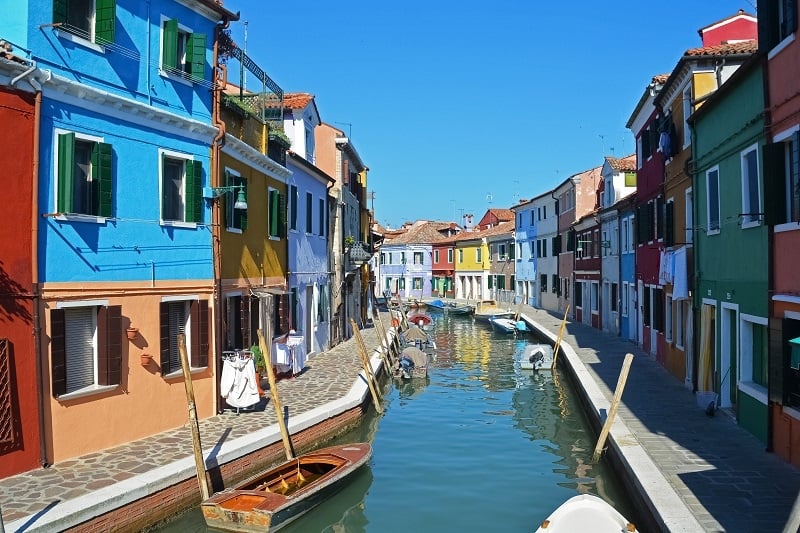
Burano, Italy — an island known for Italy’s distinct style of lace-making. | Image credit: Jeremy Zero
We’ve already written about the unpopular opinion of letting underrated destinations stay that way. While tourism provides stable livelihood, boosts economic growth, and provides a platform for preserving even dying cultures, there are downsides to introducing it to communities that won’t be ready for the impact. When that happens, the results are potentially damaging in the long run: fatigued tourist spots, polluted streets, an overworked (in effect underperforming) manpower pool, compromised cultural ideals, and the list goes on.
The next time you’re privileged enough to step into a lesser-known spot, think about the locals first. Because in this day and age, any public piece of information posted online can easily be met with virality. Sure, the place looks good on your feed, but will it remain that way with throngs of tourists ripping through its pathways relentlessly?
9. Know the difference between partaking & misappropriating
Here’s another sensitive topic: misappropriation of culture and other markers of identity. Personally, I am more forgiving in this department, because I use genuineness of intention as a moral gauge. But I know of others who passionately gatekeep culture with no holds barred. To err on the safe side, be sure to comprehend the significance of every cultural item you come across before trying it yourself. Don’t use these items or partake in practices out of context. Remember: Carry them with utmost pride and care.
Say, for example, you were handed a piece of jewelry used historically for death rituals. We don’t think it would go with your tank top and shorts; and most definitely that memory won’t age well if you immortalise it with a selfie, complete with finger hearts and sunglasses. It’s not that complicated. Just be respectful, and do all things with consent! Seeing you value their heritage will also help locals take more pride in their identity.
10. Learn a few words in the local language

Image credit: Hannah Wright
Language barriers definitely keep us from truly understanding some aspects of our destinations’ host communities, but this shouldn’t hold you back from helping out! Nevertheless, showing interest in the local language boosts the morale of those who consider it their mother tongue. It bridges gaps and even forges newfound friendships, so practise a few words or phrases before your trip!
11. Pay more attention to local history
In travel, they say the journey is just as important as the destination. Likewise, in history, you never really know what the present means to a person or place if you don’t have a grasp of their past. Listen to stories that will paint a clearer picture of local communities’ histories. This is why I love going to all kinds of museums — arts- or science-centric, anthropological, memorial — because it lays out the foundation of the connections I’m about to make in a place I’m seeing for the first time.
Think of it as getting acquainted with a destination, before really getting to know the place through its people. You can read up about it online, too, but your entrance fee most likely supports a local institution. Make a contribution on the go!
12. Support tours offered by local guides
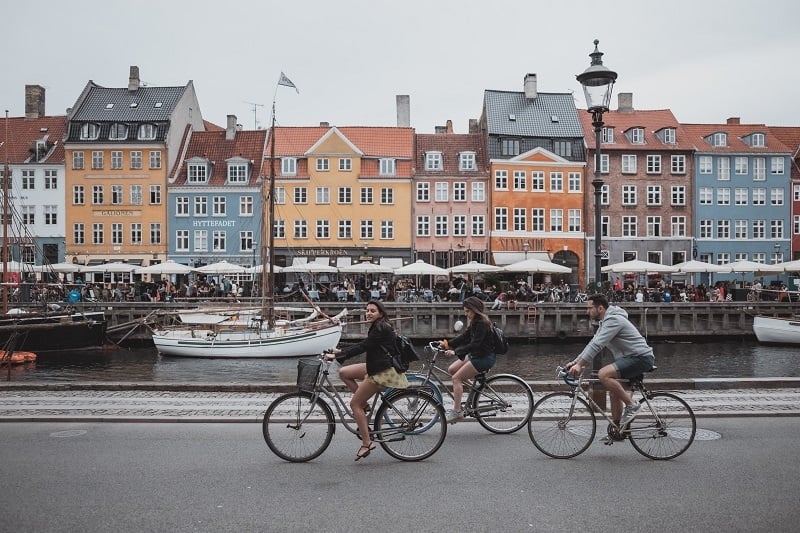
Image credit: Febiyan
Speaking of making your way around a destination, when you get the chance to go on tours operated by local guides and docents, please do! The local perspective is truly refreshing and authentic. Plus, the guide’s personal stories might even surprise you.
We once hired a local guide in Cambodia who seemed shady at first, and it turns out he was a history and politics geek who lost his job when tourist guide accreditation processes were being rolled out by the government. He was quite skilled at photography, too! There’s more to this story, but it’s not mine to tell. To this day, though, his words stay with me.
13. Stay at locally-owned accommodations
In the same vein, billet yourselves in smaller, locally-owned accommodations that fit your preferences for comfort and convenience when you can. It goes without saying that you help locals out immensely during your travels when you support their business ventures. Owners and staff have interesting tales to share as well!
During a trip to the northern parts of the Philippines, we met an inn owner who collected art pieces and antiques from her own travels back in the day. These were the same pieces that adorned her quaint bed and breakfast, which was just a garden away from her own residence. Each day, she made it a point to serve a local delicacy to guests — for our enjoyment and enrichment, but also to support nearby markets and suppliers. She was quite gracious and generous, with stories, with food, with wisdom. My 20-something self had new life goals after witnessing her run her own place. When done well, sustainable travel inspires locals and tourists alike.
14. Clean as you go

Image credit: Kinga Kołodziejska
Need we say more? At the mention of sustainable tourism, the first thing that often comes to mind is keeping the environment clean. Just as well; if we want to secure the future of travel, we must first secure the future of our planet!
15. Don’t take part in any form of exploitation
We end this list with yet another sensitive entry. Sometimes, even locals aren’t exactly aware that what’s happening in their hometown is downright exploitation — of wildlife, of labourers, of the environment, of tourists, even. It gets trickier when livelihood is at stake. When this happens, you don’t have to call them out if you’re uncomfortable doing so. And keep in mind, you can always make decent conversation by keeping an open mind! A tip: Ask questions instead of forcing your opinions so the exchange doesn’t become distressing.
We understand that, at the end of the day, you’re still on vacation and would like to keep yourselves in high spirits! What to do, then? Don’t contribute to any form of exploitation, period. As soon as you get even a whiff of it, don’t sign up for that tour or ‘experience.’ Don’t buy that trinket or ‘exotic’ souvenir. When you get home, spread the word so that people will also know better. Stopping unfair practices at the source will also hopefully raise awareness among locals. One small step at a time.
Helping local communities as part of sustainability in travel and tourism
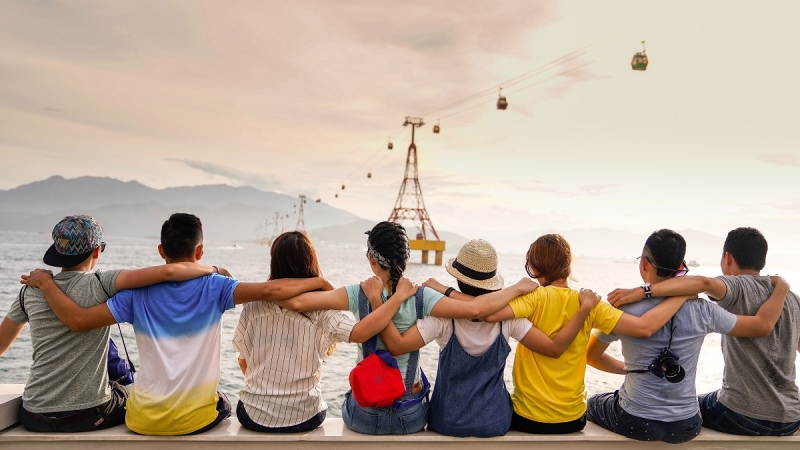
Image credit: Duay Pham
As you can already see, sustainable travel has a wide scope of issues and practices waiting to be addressed and revisited. We begin a healthy exchange today. Helping locals while travelling is just one window into an ideal world, where travel and tourism are catalysts for positive, lasting change for places and their people.
Don’t forget: Keep locals at the heart of your every adventure because people make the place. Just like you do back at home.




